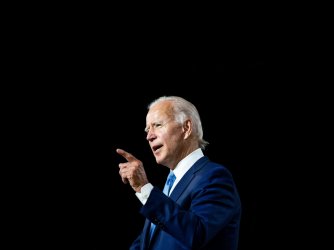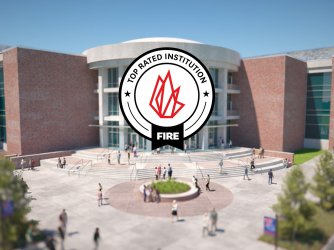Table of Contents
University of Minnesota Prioritizes Academic Freedom After 'Troubled Waters' Incident
Troubled Waters is a fitting name for the documentary that caused a scandal, a resignation, and a reexamination of academic freedom at the University of Minnesota (UM). In the aftermath of the university's canceling—and then un-canceling—the airing of the documentary, which was created by a university employee and funded by a state research grant, UM's Committee on Academic Freedom and Tenure (AFT Committee) has recommended implementing policy changes to protect academic freedom.
Nearly eight months ago, Troubled Waters: A Mississippi River Story aired at UM's Bell Museum of Natural History. Almost 650 people were in attendance for this viewing of the documentary about the negative impact of large farms on the Mississippi River. The size of the audience was likely due to a scandal involving Troubled Waters--the screening of the documentary had been postponed at the urging of then-Vice President for University Relations Karen Himle, who cited concerns over "commercial interests" and questioned the film's scientific validity. Allen Levine, Dean of the College of Food, Agricultural, and Natural Resource Science, supported this decision, and at least three deans believed the film to be unduly unbalanced against the agricultural industry. After UM began to organize a scientific review, Bell Museum Director Susan Weller, under great time pressure, compiled evidence that the film had already been reviewed by numerous university scientists and that the filmmakers had followed proper academic protocol.
The university's original delay of the firm's airing, both at the Bell Museum and on public television, caused public outcry. Himle later resigned amid speculation that her ties to the agricultural industry influenced her decision to question the film's validity. Himle's husband's public relations company represents the Minnesota Agri-Growth Council, which lobbies for agribusiness. (If you are interested in the numerous documents and university internal emails related to the Troubled Waters controversy, check out the nonprofit Land Stewardship Project's website.)
In light of the Troubled Waters scandal, the AFT Committee was asked to answer six questions about academic freedom. UM's Board of Regents had previously reaffirmed its policy on Academic Freedom and Responsibility in June of 2009 in the wake of the Supreme Court decision in Garcetti v. Ceballos. That decision sharply restricted the First Amendment rights of public employees operating in their official capacities, but left open the question of whether the decision should have an academic freedom exemption for employees of public universities. The AFT Committee's report, delivered to the university's Senate in April, appears to allow for this academic freedom exception to Garcetti to provide enhanced First Amendment rights to university employees who produce intellectual content.
The AFT Committee's report notes that UM's 2009 policy defines academic freedom as
the freedom, without institutional discipline or restraint, to discuss all relevant matters in the classroom, to explore all avenues of scholarship, research, and creative expression, and to speak or write on matters of public concern as well as on matters related to professional duties and the functioning of the University.
The AFT Committee's report then discusses the Troubled Waters incident and its implications for academic freedom. According to the AFT Committee, academic freedom is extended to those who produce their own "intellectual and artistic content," but does not apply to those hired to complete or assist in the completion of the artistic/intellectual work of others. Administrators receive academic freedom "when teaching and doing creative work within the person's discipline," but not when functioning in an administrative capacity. Troubled Waters was thus protected by UM's conception of academic freedom. The AFT Committee writes:
In the case of "Troubled Waters," a [university employee in the Academic Professional and Administrative category], using her own ingenuity, came up with a project, proposed it, earned grant support to complete it, worked on it, edited it, and also hired others to work with her on the project. The film was her intellectual product, a result of her curiosity and effort. None of the limits to academic freedom were present in the TW case. The staff person's creative work (the film's content) was protected by academic freedom.
In addition to clarifying the scope of academic freedom, the AFT Committee recommended that, if the administration confronts an issue with "the slightest implication of academic freedom," the question should be referred to the university provost, the senior academic officer at UM.
We applaud this speech-protective interpretation of Garcetti, the AFT Committee's recommendation that all employees receive training in academic freedom, and the university's commitment to clarifying how it defines academic freedom. Because academic freedom has both legal and professional components, it is therefore defined not only by the courts but also by universities' granting extra-legal rights to professors. The AFT Committee will also be preparing a white paper on academic freedom more generally, and we appreciate the university's efforts to learn from the serious mishandling of Troubled Waters.
Recent Articles
FIRE’s award-winning Newsdesk covers the free speech news you need to stay informed.

TikTok legislation sets grave precedent for free speech

FIRE joins animal advocates, free speech groups urging Ninth Circuit to affirm ruling that allows undercover audio recording

Louisiana Tech earns top rating for free speech
